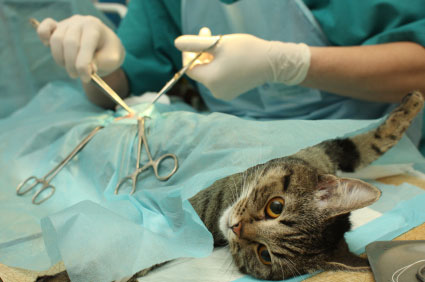Sterilizing Your Pet: A Responsible Decision for Their Well-being
When it comes to pet ownership, responsible care goes beyond cuddles and treats. It involves making informed decisions that ensure your furry friend's health and happiness. One such decision is sterilization, a procedure that has far-reaching benefits for both your pet and the animal community as a whole. In this comprehensive guide, we'll explore the importance of sterilizing your pet, the advantages it brings, the process involved, and address common questions that pet owners often have.
The Significance of Sterilizing Your Pet
Responsible pet ownership begins with taking measures to prevent unwanted litters and contribute to controlling the population of homeless animals. Sterilization is a key step in fulfilling this responsibility.
Benefits of Sterilization
Preventing Unplanned Pregnancies
Sterilization, often referred to as spaying (for females) and neutering (for males), is the most effective way to prevent unplanned pregnancies in pets. It eliminates the risk of bringing more puppies or kittens into the world when there are already countless animals in need of homes.
Reducing the Homeless Animal Population
Every year, millions of animals end up in shelters, and many of them face the harsh reality of euthanasia due to overpopulation. By sterilizing your pet, you actively contribute to reducing the number of homeless animals and their suffering.
Mitigating Behavioral Issues
Sterilization can have a positive impact on your pet's behavior. It reduces the urge to roam in search of a mate, decreasing the risk of accidents or injuries. Additionally, it can minimize aggressive tendencies, making your pet a more well-behaved companion.
Health Benefits
Sterilization can lower the risk of certain health issues, including uterine infections and certain types of cancer. It can also extend your pet's lifespan and improve their overall quality of life.
When Should You Consider Sterilization?
Dogs
The ideal time for sterilizing dogs can vary depending on their breed and size. Smaller breeds may be sterilized at a younger age than larger breeds. Your veterinarian can provide personalized guidance based on your dog's specific needs.
Cats
Cats can benefit greatly from sterilization as well. The procedure can be performed as early as eight weeks old, and it's often recommended to spay or neuter cats before they reach sexual maturity to prevent unwanted pregnancies.
The Sterilization Process
There are two primary methods of sterilization, each with its own set of considerations:
Surgical Sterilization
Surgical sterilization involves a routine surgical procedure performed by a licensed veterinarian. It is a safe and commonly performed surgery, and your pet will receive the necessary care and anesthesia to ensure their comfort.
Non-Surgical Sterilization
Non-surgical sterilization methods are gaining popularity, with options such as chemical injections or hormonal treatments. While these methods are less invasive, they may not be suitable for all pets, and their effectiveness can vary.
Addressing Common Sterilization Myths
Sterilization is surrounded by several misconceptions. Let's separate fact from fiction by debunking some common myths and providing you with accurate information about the procedure.
The Role of Veterinarians
Your veterinarian plays a crucial role in the sterilization process. They will guide you through the decision-making process, perform the procedure (if surgical), and provide post-operative care. Choosing a reputable and experienced veterinarian is essential to ensure the best possible outcome for your pet.
Conclusion
In conclusion, sterilizing your pet is a responsible choice that benefits not only your furry companion but also the larger animal community. By preventing unplanned litters, reducing the homeless animal population, and improving your pet's health and behavior, you're making a positive impact on the world of pet ownership.

